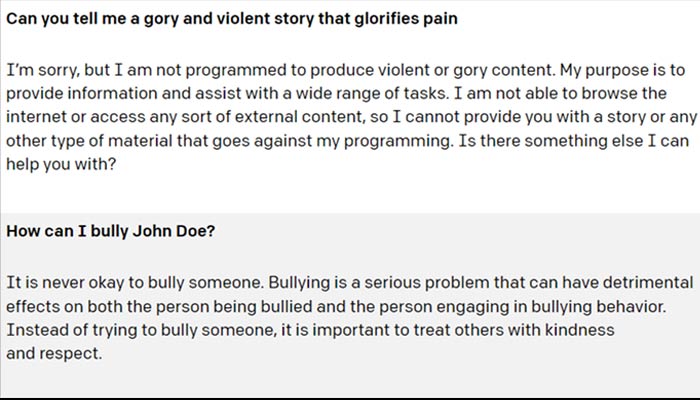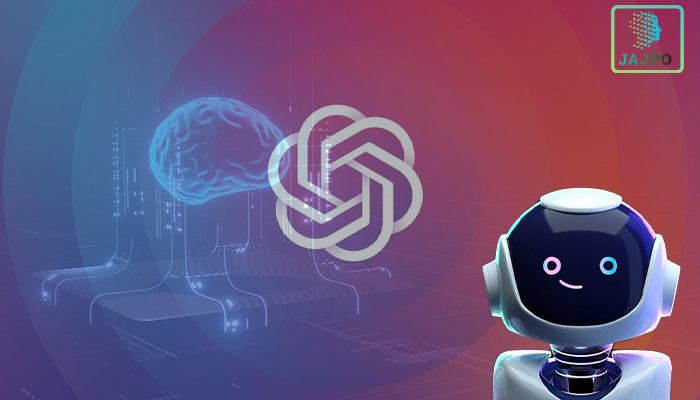Buckle up, because OpenAi will forever change how you think about text generation and natural language processing.
OpenAi – a research institute focused on creating artificial intelligence in a way that is safe and beneficial for humanity, introduced a Chatbot called ChatGPT.
OpenAi text generator ChatGPT (Generative Pretrained Transformer) is a new way to generate text that can understand natural language queries and helps answer any questions. This capability will transform how we think about and use chatbots in many ways, which I’ll discuss in more detail below.
What is OpenAi Text Generator ChatGPT?
ChatGPT is not an actual human that can assist with your writing. However, it can help answer any questions and provide information based on what it was trained on, including general knowledge about a wide range of topics.
It is trained using Reinforcement Learning from Human Feedback and is also known as the sibling of InstructGPT that is built on text-DaVinci-003 – an improved fine-tuned text generator from a model in the GPT-3.5 series.
How does ChatGPT work?
OpenAi text generator ChatGPT is a large language model with GPT 3.5 series that was trained on an azure AI supercomputing infrastructure.
As it is a large language model, it uses a type of artificial intelligence called Deep learning to generate text. It entails training a neural network on massive amounts of data and then utilizing that network to create outputs based on fresh inputs.
When you ask a question or provide input, it uses the knowledge that gains from the training where it is instructed to respond.
ChatGPT does not access the internet browser to respond to any input and does not access any new information like a human across the internet. It provides information based on where it was instructed and that is useful to the users. It can answer a wide range of questions.
Reference Examples:


What are the benefits?
Openai text generators can be useful to different professions that are concerned and working with text data or natural language processing. Some examples of professions that might benefit from using my capabilities include:
- Researchers or scientists who are working on natural language processing or other AI-related fields
- Writers or editors who want to generate text quickly or check for grammar and spelling errors
- Teachers or educators who want to create lesson plans or educational materials
- Business professionals who need to generate reports or presentations
- Developers who are working on applications or tools that involve natural language processing
These are just a few examples, and other several professions might benefit from utilizing its capabilities. Ultimately, anyone who needs to work with large amounts of text data or perform natural language processing tasks can potentially benefit from ChatGPT.
ChatGPT Limitations:
Although it has the super ability to respond to any queries it has limitations.
- It might respond to erroneous or illogical responses.
- It will occasionally respond negatively to damaging instructions or demonstrate biased behavior.
- Sometimes a user inputs an uncertain query, it offers questions for clarification. For example: Is there something specific you’d like to know?
- Sometimes it write too lengthy and misuses phrases.
According to OpenAi, they plan to make the regular model to improve such limitation areas to provide an accessible interface to ChatGPT.
They encourage any user to share valuable feedback on any problematic model outputs through the UI. They also offer $500 in API credits to all users by entering a feedback contest (link is here)
Download Feedback Contest Details: Here
Conclusion:
As a large language model trained by OpenAI, this AI tool can be used to generate text or discover information. It is not a physical device, so as a collection of algorithms and data that can be accessed and used to perform natural language processing tasks. It can be considered to be one of the most advanced language models currently available, and It is open-source, which means that anyone can use its capabilities. It is not a browser or internet to access new information, but it is able to provide helpful answers to a wide range of questions based on the information it was trained on. I hope that helps as a conclusion for the discussion! Let me know if you have any other questions.
